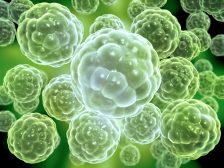Definition
noun
The acidic digestive fluid secreted by various glands in the stomach lining into the lumen of the stomach, primarily for the partial digestion of food as well as the eradication of many pathogenic microbes that have concurrently entered by way of the oral cavity
Supplement
The gastric juice is a body fluid that aids in the digestion of food. Nevertheless, it is just one of the various digestive juices secreted in the body to aid in food digestion. It is made up of hydrochloric acid, potassium chloride, sodium chloride, pepsinogen and other digestive enzymes, intrinsic factor, gastrin, mucus, and bicarbonates. It has a pH ranging from 1 to 2. Its low pH is essential in activating many digestive enzymes and in destroying various pathogens. The gastric juice also contains bicarbonates to neutralize the acid and thereby regulate the pH level in the stomach. Mucus is also produced to serve as a barrier to prevent the gastric acid from damaging the stomach and to inhibit the digestion of the stomach itself.
The gastric juice is secreted by various glands in the stomach:
(1) fundic glands, the glands located in the fundus and body of the stomach that secrete hydrochloric acid and intrinsic factor
(2) cardiac glands, the glands in the cardia of the stomach that secrete primarily mucus
(3) pyloric glands, the glands in the antrum of the pylorus that secrete gastrin
These glands are housed in the gastric pits, which in turn are located in the gastric mucosa of the stomach.
Mentioned in:
- Peptic ulcer
- Hydrochloric acid
- Sham feeding







